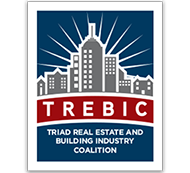Inclusionary Zoning – Marlene gave the first of what is sure to be several briefings on this topic, which may be our biggest issue for the foreseeable future given the looming challenges to delivering affordably priced product, when federal dollars are short for traditional programs, and our sluggish economy is not keeping incomes on-pace with inflation. WS and GSO are both considering it now. So it’s important for TREBIC members to get up to speed on this issue now so you can defend yourselves in rezonings and ordinance rewrites.
NC requires local governments to have statutory authority to institute even voluntary incentivized IZ, and fewer than 10 have it. But voluntary incentive programs are proving ineffective, so Chapel Hill has moved to requiring it in spite of the law, and some jurisdictions are resorting to strong-armed zoning conditions, especially in areas that are gentrifying, such as downtowns.
WS has statutory authority for voluntary incentivized IZ, and has been considering requirements and zoning conditions for at least a year. IZ was first written into GSO’s Comprehensive Plan draft in 2003 and called “Fair Share Housing”. Fortunately we caught it, recognized it for what it was, argued successfully against it and it was deleted before the final draft was issued. But the concept has resurfaced this winter in an intensive series of affordable housing stakeholder groups meant to help the city deal with pressure from HUD to plan for affordable housing as dollars for traditional federal programs are stretched thin. IZ is expected to be a topic of the Feb 24th Housing Summit at George K’s from 8:00-3:00. Members are encouraged to attend to ensure that professional experience is injected into the conversation.
TREBIC’s Board has determined that this kind of policy needs to be stopped regardless of where it originates, and authorized the devotion of TREBIC resources to the issue. We have prepared a white paper for use in these discussions, attached.


